Americans may want deficit reduction, but their favorite solutions may involve a bit of magical thinking: they believe significant deficit reduction may only require cuts in areas they are willing to cut — like defense spending, and not in other areas – like entitlements and education — where they oppose spending cuts.
In the latest Economist/YouGov Poll, twice as many would support reductions in defense spending in order to reduce the budget deficit than would oppose such cuts. And a majority believes those cuts would be necessary to reduce the deficit. Only 27% think it would be possible to make big deficit reductions without defense cuts.
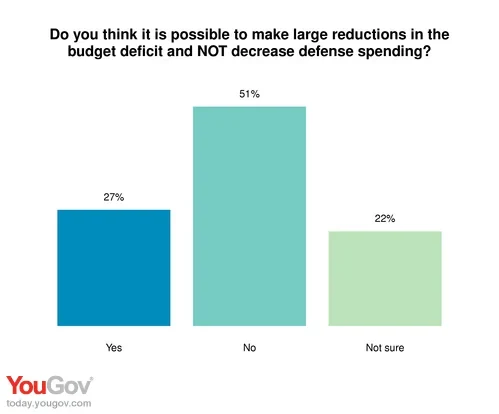
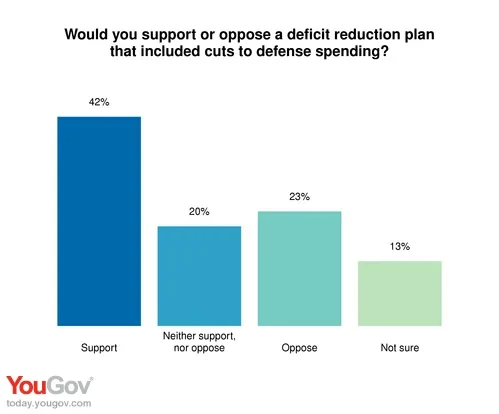
Nearly half think deficit reduction CAN be achieved without reducing Social Security and Medicare. And even more, 60% would oppose any such cuts.
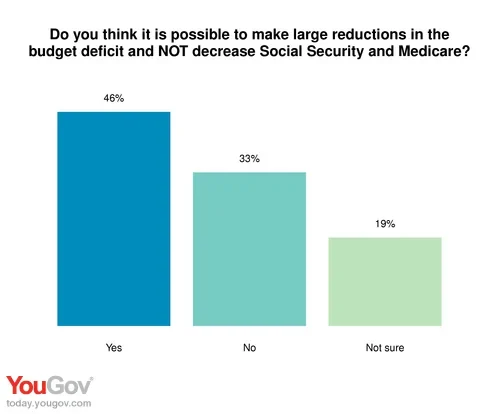
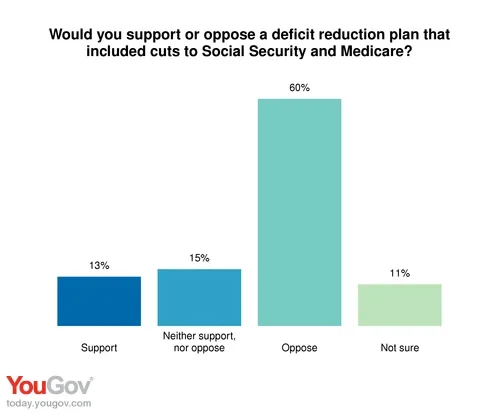
Americans also oppose decreases in government spending for education and student aid; and by 42% to 33%, believe deficit reduction can be achieved without such cuts.
Both Republicans and Democrats oppose entitlement cuts (although more than a third of Republicans would support cuts in education). On defense spending, however, the parties differ. Nearly half of Republicans oppose reducing defense spending, and nearly half think deficit reduction can be achieved without cuts to defense.
The parties also differ when it comes to tax increases to reduce the budget deficit. 71% of Republicans oppose tax increases, while Democrats are divided.
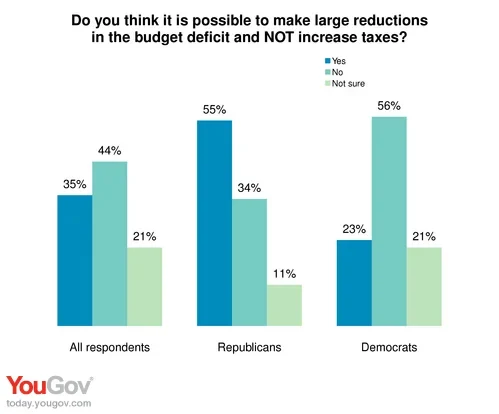
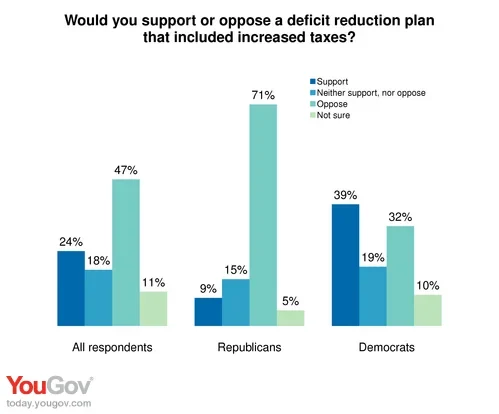
A majority of Democrats believe tax increases will be necessary to make significant deficit reductions.
Economist/YouGov poll archives can found here.
Photo source: Press Association






